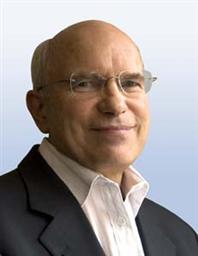Guerrillas,
We've liaised with Dr. Rodney Ford (New Zealand Paediatric gatroenterologist, allergist, nutrition consultant and author if the The Gluten Syndrome book). We interviewed Dr. Rodney Ford and asked the key question for newbie and guru Coeliacs alike...
Our Q&A with Dr. Rodney Ford...
GFGs
Q: Is a gluten-free diet the only way to manage Coeliac disease?
Dr. Rodney Ford
A: Well, the simplistic answer to this question is “yes”.
However this is a complex question. To narrow the question, I will first assume that coeliac disease means that ‘a diagnosis has been made by endoscopy showing the characteristic flatness/atrophy of the small bowel mucosa’ (I will address the question of how early you can diagnose coeliac disease in a later blog).
Yes, a gluten-free diet is the central management strategy for coeliac disease. But what does gluten-free mean? A gluten free diet means zero gluten for life. No exemptions. Certainly there are many people who suggest that people can eat gluten to tolerance. I disagree. Any gluten has the potential to cause you harm.
But does zero gluten literally mean non-at-all? The most complex part of answering this question is “what does a zero-gluten-diet mean in terms of every-day practicality?” Recently, there has been a lot of debate about how many parts per million (ppm) of gluten is acceptable in food. Pragmatically, because it is so difficult to get rid of cross-contamination in food production and processing, the number of 20 ppm is now surfacing as a reasonable level of gluten to be consumed (some countries have 200ppm, and the FDA likely to agree to 20ppm). This seems to be a negligible amount. However, there are still concerns for some people who seem to be exquisitely sensitive to gluten.
For me zero-gluten means no gluten. This can be achieved if you eat fresh fruits and vegetables, unprocessed meat and fish, uncontaminated rice, corn and other alternate grains, and unprocessed dairy foods and eggs, nuts also. This means no packet or processed foods.
But it is a lot more that ‘just’ going gluten-free. Yes, there are a lot more things to do for healing someone with coeliac disease. The longer that you have had coeliac disease, the worse your body will be. More healing will be required. You may need additional minerals, vitamins and probiotics. There are a number of routine health checks to take. You should also ensure that your gut has healed (via blood test and maybe repeat endoscopy).
There is talk about vaccines for coeliac disease. I think these are a long way off. On top of this gluten is a trigger for many autoimmune diseases and neurologic conditions. So giving pharmaceutical treatment for coeliac disease will still not remove the threat of gluten to your body.
Zero gluten is the main stay of treatment for coeliac disease. I do not see this changing much in the future. I do see the gluten-free lifestyle being very widely adopted over the next decade. I do see better non-gluten grains. I do see a generation in much better nutritional health.
By Dr Rodney Ford, Author of The Gluten Syndrome
Thanks...
We'd like to thank Dr. Rodney Ford for answering our question and helping to widen the debate and awareness of why a gluten free diet is so important for all Coeliacs worldwide.
DISCOVER MORE:
Website: DrRodneyFord.com
Book: drrodneyford.com/index.... also available via Amazon online
WANT TO QUOTE US?
They say that copycats are actually a compliment. So if you'd like to spread the news about our blog and further the push on Coeliac Awareness all we ask is that you quote us as the source and play nicely online. Cheers.
